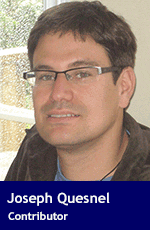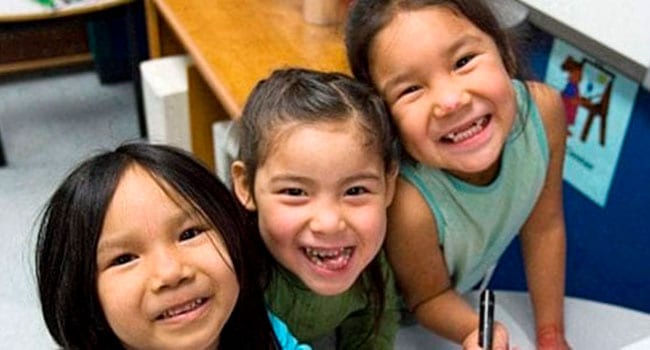 When the Canadian Parliament ratified the Nisga’a Final Agreement – a modern treaty granting substantial powers of self-government to a B.C. First Nation – a Nisga’a leader observed that the Nisga’a representatives in the public gallery stood and sang O Canada.
When the Canadian Parliament ratified the Nisga’a Final Agreement – a modern treaty granting substantial powers of self-government to a B.C. First Nation – a Nisga’a leader observed that the Nisga’a representatives in the public gallery stood and sang O Canada.
Perhaps for those standing in the public gallery, there was no feeling that one had to choose between Indigenous self-government and loyalty to Canada. Both allegiances could co-exist in the same heart.
After all, for First Nations seeking self-government, it is not about independent statehood completely divorced from Canada, but a new relationship vis-a-vis the Canadian state.
It could be argued First Nations have their rights and interests – including their distinct nationhood – protected by Canada.
First Nations have an ambivalent relationship with Canada. Many do not consider themselves Canadian. First Nations, more than any group, have earned the right to be divided over Canadian citizenship.
The original treaty relationship respected the autonomy of First Nations and allowed settlers to dominate the rest of Canada. After Confederation, however, the Canadian state began to meddle in First Nation life and governance.
Treated as “wards of the state,” First Nations were subjected to assimilation measures. As “wards,” they certainly were not partners in Confederation and were not solicited for their opinions on whether to join Confederation. Voting in federal elections – a sign of modern citizenship – was denied to First Nations at first unless they gave up their Indian status through the process of “enfranchisement.”
This unfair process made First Nations choose between their status and identity and citizenship. They were prohibited from voting in provincial elections until 1948 and municipal ones until 1949.
Finally, in 1956, Parliament amended the Canadian Citizenship Act to include First Nations so that they gained the right to vote in 1960, for the first time not having to give up their Indian status to do so.
The last gasp of the assimilation-oriented state policy occurred with the 1969 White Paper that sought to eliminate separate Indian status. From then on – especially after the entrenchment of Aboriginal rights in the constitution – First Nations policy affirmed Aboriginal difference, rather than undermined it. Through self-government agreements, Indigenous peoples have been able to restore parts of their historic peoplehood.
Since the 1970s, federal policy has emphasized the resolution of outstanding land claims. Thus, the ship of state has turned towards expressions of Indigenous nationhood within the Canadian state. First Nations now can rebuild a nation-to-nation relationship and accept Canadian citizenship. Many First Nations accept multiple citizenships already. Or as one Indigenous friend put it, “I consider myself to be a Canadian. As well as a Nisga’a citizen. And a Vancouverite.”
Henry Reynolds, an eminent Australian historian, speaking of the Australian case, argued that Aboriginal people will have a national loyalty to their Aboriginal first nation and a civic loyalty to the Australian state. The same could be argued for Canada.
Indigenous peoples do not need Canada to be perfect in order to declare allegiance to it. The Indian Act, that vestigial organ of colonialism on the body politic, still exists. But bands all the time are removing themselves from its grasp.
First Nations in 2015 have much in common with non-Aboriginal Canadians to form a common political community. They often speak of the same values and attachments. Not long ago the government amended the Canadian Human Rights Act so that First Nations were protected from discrimination, just like every other Canadian.
First Nations share goals with other Canadians that are best achieved through the vehicles of citizenship. For example, chiefs at a recent AFN meeting called on their people to vote against the Harper Conservatives. One Manitoba grand chief called it, “a matter of national importance.” The late Elijah Harper participated within the system to achieve change, not outside of it.
Lastly, First Nations need the empathy, shared bonds and obligations from other Canadians that citizenship generates. First Nations communities are hurting and need help. A stronger sense of responsibility and caring from other Canadians could change that.
With enfranchisement long gone, First Nations need not give up their status to become citizens. The Canadian state accepts Aboriginal difference and claims of nationhood. Indigenous peoples need not fear Canadian citizenship. Now, more than ever, they need strong bonds with other Canadians to improve their communities.
Joseph Quesnel is an Aboriginal policy analyst who focuses on Aboriginal policy, property rights, and water market issues.
Joseph is a Troy Media Thought Leader. Why aren’t you?
The views, opinions and positions expressed by columnists and contributors are the author’s alone. They do not inherently or expressly reflect the views, opinions and/or positions of our publication.
